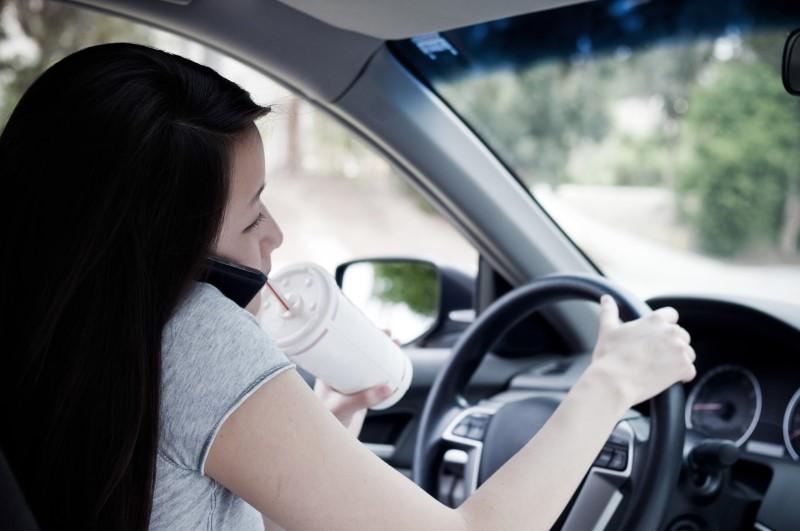Brake, the road safety charity, is calling on fleet operators to crackdown on driver distraction, as more than a third of respondents to its annual Fleet Safety Survey say they do not monitor distraction, and three in ten organisations admit they do not have any policies in place aimed at preventing distraction.
This year’s survey, conducted with the support of Licence Bureau, covered the issue of driver distraction, including:
- Mobile phone use
- In-vehicle technology
- Eating & drinking
- Music
- Smoking
- Grooming
128 of the fleets surveyed said they do not monitor levels of driver distraction. Of those that do 66 rely on self-reporting by drivers rather than use of systems such as in-vehicle cameras or DDDR (Driver Drowsiness and Distraction Recognition) technology.
Driving is a highly unpredictable and risky activity, which requires your full attention at all times. Drivers who perform a secondary task at the wheel are two to three times more likely to crash [1].
Many drivers allow themselves to be distracted because they believe they are in control, and do not believe distraction poses a significant risk [2]. However, 98% are not able to divide their attention without significant deterioration in driving performance [3]. It is essential that organisations have policies in place that help to prevent driver distraction.
More than 350 fleet operators completed the survey; the majority of respondents are from the UK, with responses also coming from fleets based in New Zealand, Australia, mainland Europe, Asia and North America. Respondents manage a total of more than 267,000 vehicles including cars, vans, trucks, buses and mopeds, and more than 35,000 employees driving for work.
Other key survey findings include:
- Three in ten (29%) admit they do not have any policies in place aimed at preventing driver distraction.
- More than a quarter (26%) of the fleets surveyed don’t run any driver education/ awareness sessions, either face-to-face or online, on the topic of driver distraction.
- Nine in ten (91%) organisations that have implemented distraction policies have banned the use of hand-held mobile phones while driving, but less than a third (32%) have restricted the use of hands-free phones, despite the risk of distraction
The Fleet Safety Survey report includes full details of the survey results, along with best practice guidance on preventing driver distraction.
This vital resource is available free to members of Brake Professional through the website www.brakepro.org. Others can order it online through Brake’s shop – www.brake.org.uk/shop.
Caroline Perry, Brake’s NZ director says: “Driving requires the full attention of the driver. Distraction at the wheel can have devastating consequences and is a factor in a significant number of crashes. Our survey shows many fleet managers are still not doing enough to prevent driver distraction. While many are aware of the risks, this needs to be better reflected in company policy, as well as through the introduction of best practice initiatives, evidence-based interventions, effective driver education and data monitoring. Managers can use this survey report to identify where their own distraction policies and procedures fit, and follow best practice advice to make improvements if necessary.”
Mike Reed of Licence Bureau says: “Tackling driver distraction is a new battleground and key area that companies need to be actively resolving; improving both the driver, and the company’s safety culture surrounding employees’ driving activities at the wheel.”



